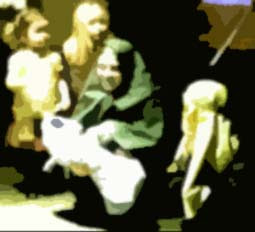Things change over the summer. Godly Play and Teen Talk programs stop for a while. Some things do not change: short attention spans of our beloved little ones who do not want to sit through lengthy prayers and preaching during a typical second half of worship.
Should parents with little children stay home from worship over the summer? Threaten kids who misbehave? Or are there better alternatives?
A few parents have expressed interest in coming up with some alternatives. Angie is ready to lead an effort for kids ages 6+ during worship through the summer. Would anyone else be interested to help plan activities for 3-5 yrs olds?
Please contact Teresa Elenbaas.
How much programming is needed? There are eight Sundays available for programming this summer: June 26, July 3, July 17, July 24, August 7, August 14, August 28, September 4. If eight parents willing to lead an effort - four for each of the two age groups - they would each be responsible for just two Sundays over the summer.
Summer Sundays without need for children's programming or nursery:
July 10: ALL FAMILY SUNDAY
July 31: GROUNDWORKS
August 21: ALL FAMILY SUNDAY
September 11: ALL FAMILY SUNDAY
These summer ideas could turn into something new for fall Children's Ministry programming, too, which launches September 18. Sometime in July, Teresa, Angie, Rennie and Eric will convene a brainstorming session around Sunday programming and (if time permits), Parent Ministry. When scheduled, this will be announced and open to any parents or members who would like to participate.
Other summer opportunities include:
Uncle Randy's Summer Bible Camp (maybe in August)


